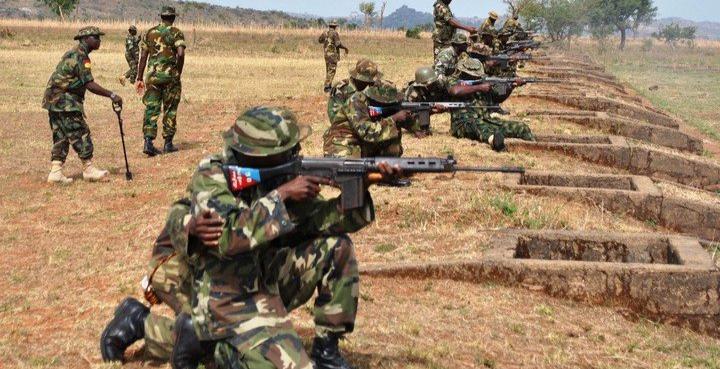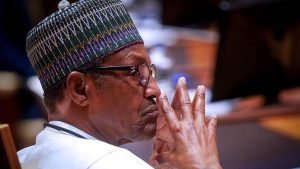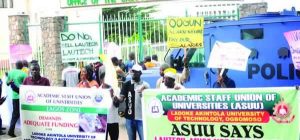
The military of any nation is not a sheer ‘outpost’ for men in uniforms looking out for distress situations to intervene in. As a composite architecture of the armed forces and all its constituting elements, the military is indeed a strategic national guardian entrusted with security matters connected with lives and property within the geographic space of a country. The Nigerian Constitution, for instance, adequately provides that ‘there shall be an Armed Force for the Federation, which shall consist of an Army, a Navy, an Air Force, and such other branches of the Armed Forces of the Federation as may be established by an Act of the National Assembly.’ Also, the Federation shall, subject to an Act of the National Assembly made in that behalf, equip and maintain the Armed Forces as may be considered adequate and effective for the purpose of defending Nigeria from external aggression; maintaining its territorial integrity and securing its borders from violation on land, sea, or air, and suppressing insurrection and acting in aid of civil authorities to restore order when called upon to do so, among other provisions.’ Indeed, the military enjoys such special privileges as the Nigerian Constitution adequately provides for, and it is so strategically significant in the scheme of things.
The Nigerian military did live up to this expectation when, for the first time, it had to deal with a civil war situation, which had lasted between 1967 and 1970. Already a crisis-torn country by 1967, on account of political tensions that preceded the time, the nation had fallen into a war when the Eastern part decided to break off from the rest of the Federation. On May 28 of that same year, the Head of State, General Yakubu Gowon, had issued a decree to further divide the four regions into twelve states, with three of them from the Eastern Region, and each to be autonomous and responsible for its own law and order. But, two days after the decree, the Eastern Region, led by its Military Governor, Colonel Chukwuemeka Odumegwu Ojukwu, seceded by pronouncing itself the Republic of Biafra. Consequently, a war broke out over a wide area. But it was not for so long before federal troops overran and captured Enugu, capital of the then Eastern Region. By late 1969, federal troops appeared to have crushed the rebellion, though ethnic antagonisms remained to certain degrees.
Prosecuting the war was not without huge and frightening challenges to the Federal Government led by General Gowon. The United States of America, for instance, had barred the shipment of arms to Nigeria. Also, Britain had refused to sell required essential arms to the Federal Government. Nigeria needed arms badly to neutralise the rebels. To mitigate these critical obstacles, the Federal Government requested assistance from the then Soviet Union. Sooner than later, its forces were reinforced by the arrival of six Czech L-26 jet planes and six outmoded MIG fighters, six MIG trainers, military supplies, and mechanics. On its part, Biafran fighters had reportedly also acquired from the Portuguese two obsolete B-26 bombers and a few helicopters. It was estimated that the Civil War had cost both sides $140 million for the purchase of arms.
Nigeria had gone into the Civil War in 1967 with just about 5000 soldiers in its army. However, by the time the war was ending, Nigeria had well over 250,000 men in its national army, all within the space of 30 months of prosecuting a civil war for which it had no previous experience. The government embarked on mass recruitment into the military, and simply overwhelmed Biafra by the sheer number of soldiers who were in the theatre of war. There were federal boots in every available space within recovered territories.
The significant points that must be made and firmly established is that, in going to war, a nation’s military requires both strategic and programmatic approaches. When the United States and Britain turned their backs on Nigeria, the Federal Government wasted no time in turning to Russia. The procurement of arms did not require any sentiments towards the so-called traditional Western allies, and government quickly showed itself capable of doing business anywhere in the world.
Nigeria’s situation today is so similar to the Civil War experience, and she need waste no more time whatever in waiting for America, Britain, or any other country for that matter. She should actively explore and engage other options in terms of arms procurement. China and Russia have been more dependable allies in several contexts, and with less arrogance and strings. Nigeria should begin to actively play the game of a well articulated national self interest at this time. Beyond arms procurement, these countries also have the technological capabilities to significantly aid the task and processes of finishing the war, and it is time to begin to look in their direction.
In pushing hard against the current insurgency and decimating it, Nigeria needs to inundate her space with a near-ubiquitous military presence to make the needful statement against the Boko Haram fighters. Boots on the ground! Boots everywhere! This is what Nigeria needs now in every contested territory in the Northeast, the Northwest, and elsewhere.
In addition to the need for arms which can be quickly fixed through a pragmatic approach, the war against insurgency has been prolonged by the huge gaps in human power to effectively crush the insurgents. This explains why, for instance, the troops of the Nigerian Army always move on after conquering and recovering territories from the hold of the terrorists. In moving to conquer the next town or community, or in chasing after the terrorists, there has often been security gaps in the towns just recovered, and the insurgents keep finding ways of making the most out of the gaps. That was what happened in the recent case of the Boko Haram attack on Governor Babagana Zulum of Borno State. It is in this critical sense that Nigeria really needs boots and battalions everywhere in and around the theatres of war!
Currently, the Nigerian Army has a strength of about 124,000 soldiers and officers in active service, and is currently engaged in one form of intervention or the other in 30 of the 36 states of the federation. The reality of the current Nigerian experience is that the entire Nigerian military does not have the numerical strength, the human power required to effectively remain engaged in various parts of the country and at the same time effectively execute the war in the Northeast and Northwest and totally crush Boko Haram.
Conversely, the Boko Haram, has maintained an adequacy of number of fighters to engage the war. Boko Haram seems to be making more concerted efforts at reinforcing its numbers through steady recruitment of footmen and fighters in ways that an organised guerrilla would do.
For Nigeria, there should be a timeline for increasing the number of recruits into her military to 400,000 well trained active personnel within the next six to nine months. The numerical strength of the Nigerian Armed Forces should be prioritised with the objective of having a dominating presence in every local government in the entire Northeast and in parts of the Northwest and North-central. Nigeria is in a state of war. A distinctively superior military power and decisiveness of strategy will be needed to completely overwhelm and decimate the insurgency at once. Such overwhelming presence of military forces on the Nigerian landscape would mean everything for the magnitude of decimation required to completely wipe out Boko Haram from Nigeria. The military has to inundate and overwhelm the entire regions of conflict within the country.
Since the Civil War experience, Nigeria has been a major actor in both regional and continental contexts of warfare. Nigeria is also a major provider of fighting troops to the United Nations. The country has, at different times, been in Sierra Leone, Liberia, Somalia, Mali, among other countries on the African continent, on peacekeeping missions. To these extents, with the current situation back at home with the Boko Haram, it is expected that the country will be in a strategically comfortable place to prosecute an outright extermination of the Boko Haram insurgents.
Although it had established a presence between the late 1990s and early 2000s, Boko Haram became a prominent terrorist group in the northeast of Nigeria just a little over ten years ago. A decade down the road of actively engaging this threat to Nigeria’s sovereignty, there are pertinent questions that continue to beg for answers. Why is it taking the military so long to completely wipe out the bagas? The lingering combat against Boko Haram has fractured into different theatres of distractions for the military. There are now associated crimes such as banditry, kidnapping and calculated arsons sometimes deemed to be coloured by political agendas.
In this face of this lingering reality, questions that must be promptly asked and answered are: Who are the terrorists and who are their sponsors? What are the logistics of their arming and organising? What are the routes through which their funding is channeled? How are the monies being passed? Do parts of the monies make it through the banking system? Are there internal collaborators in the Nigerian military, the financial institutions, and political circles? The intelligence agencies in the country, including those within the military should be able to provide answers to these questions. After over ten years of fighting Boko Haram, the Federal Government cannot say it does not know.
To deal with many of these fundamental issues, the Nigerian military has before it the critical task of reviewing and re-engaging its own strengths and strategies. Military strategy, by best practice, encompasses the composite actions of reducing an adversary’s physical capacity and willingness to fight, and continuing to do so until one’s intentions are satisfactorily accomplished. This may be done either in wartime or in the time of peace. Military strategy also encompasses the use of direct and/or indirect forces as a threat. The ends or objectives, courses of action, resources, and risk are properly calculated to achieve the targeted results of the military forces. Critical to effectively prosecuting the war at hand is the issue of funding for the military. Sadly, the first trench of funding for the Nigerian military in the 2020 national budget was only made available to the Armed Forces in July 2020. Without doubt, such cannot be the story of a nation that is at war and badly needs to crush the insurgents. Investing in infrastructure development when adequate national security is lacking, is futile venture in all ramifications.
Fighting a counter-insurgency war will require a lot of resolve by the government to see the battle to a clear and logical conclusion. This resolve must show in how much the country is ready to commit to the fight in terms of funding. It is only with funding that the numerical strength of the military, and it weaponry, can be increased to the required levels. But the current financial state of the Nigerian military does not indicate the expected level of readiness. The nation’s military spending and defense budget from 2012 to 2017 was on a steady decline. If Nigeria does not multiply her human power and firepower, she would continue to live with insurgency, banditry and sooner or later contend with more insurgencies from other parts of the country and the real threat of extinction.
These statistics are a significant pointer to how Nigeria stands in terms of financial readiness to tackle its security challenges. Yet, in terms of weaponry and logistics, sophistication of their ammunition, the buffalo trucks and unmanned air vehicles (UAVs), as well as the various anti-aircraft weapons being deployed by the Boko Haram, attest to its firepower and level of preparedness. How did Boko Haram achieve these levels of equipping? Apparently, the links between Boko Haram and ISIS have become stronger in recent times, and this has significantly informed the degree of funding, strategising and organising by the terrorists.
Invariably, Nigerians should know that the nation is at war not just against some local miscreants-turned-insurgents, but also against some very strong foreign forces who want to pull down the country. Worse still, supposedly traditional allies – the United States, Britain, and France – have amply demonstrated that they would rather have Nigeria remain in a perpetual state of conflict than even sell arms to her to finish the bagas. Remember that the United States, or her experts, had predicted years back that Nigeria would disintegrate in 2015. There are foreign powers that continue to dread the possibility of Nigeria actualising what President Nnamdi Azikiwe had described as her ‘manifest destiny’ of becoming a global black power.
Read Also: Civilians Join the Army to Fight Boko Haram
Nigeria should therefore really take her fate in her hands. This begins with the President and Commander-in-Chief. President Muhammadu Buhari who has to give instructions and orders regarding building up the Armed Forces into an intensely dominating, highly mobile attacking force that will completely reclaim the sovereignty of Nigeria wherever it is being contested, and make the country a safe haven for every citizen. The President should tell the nation that Nigeria is at war, and where necessary, assume such emergency powers that will allow him to build a military that will completely crush the enemies, shame the detractors, and establish peace and security in every piece of land that is Nigerian.
Udu Yakubu
Abiodun Bello

